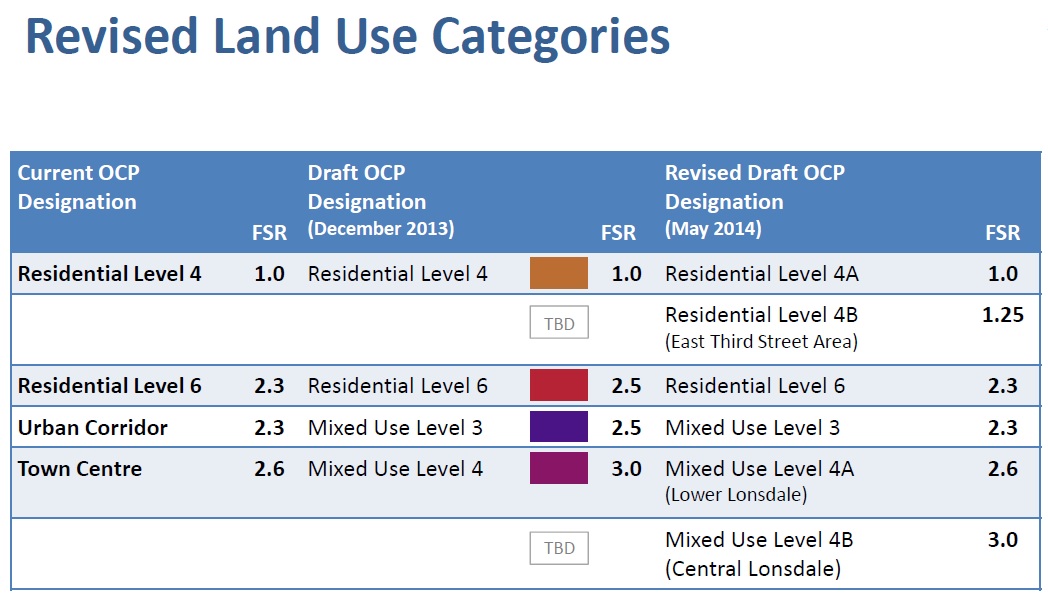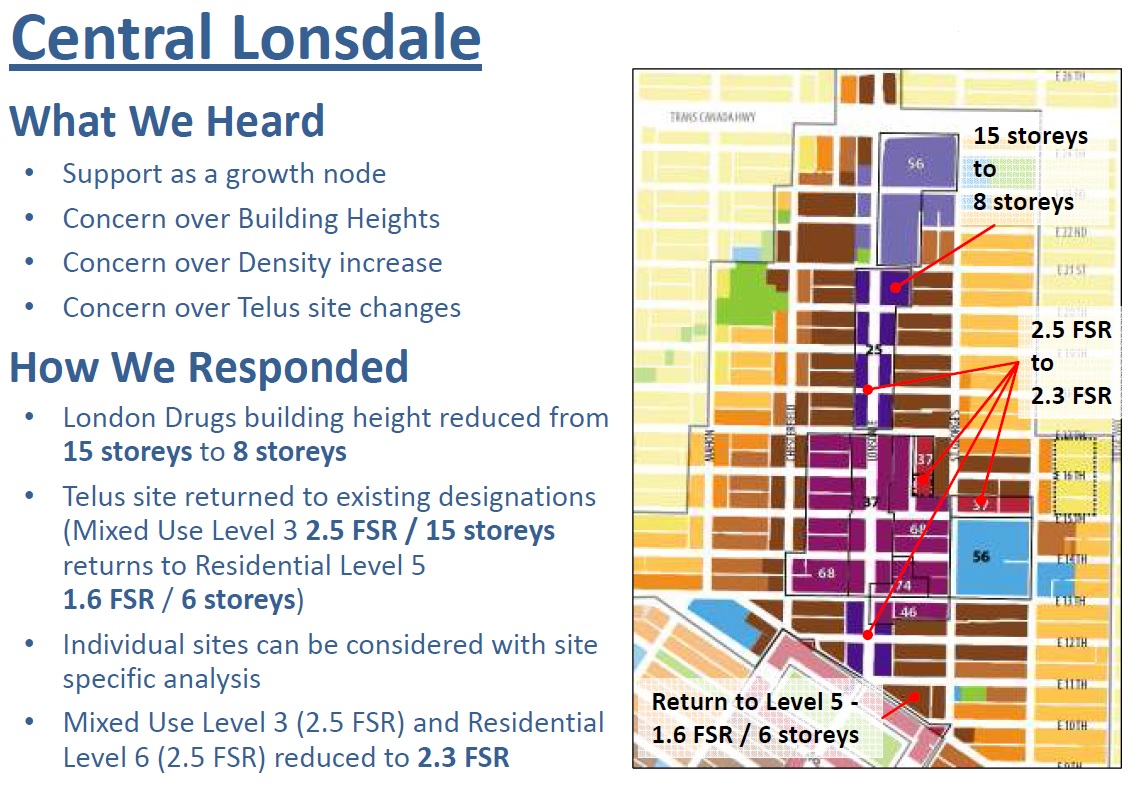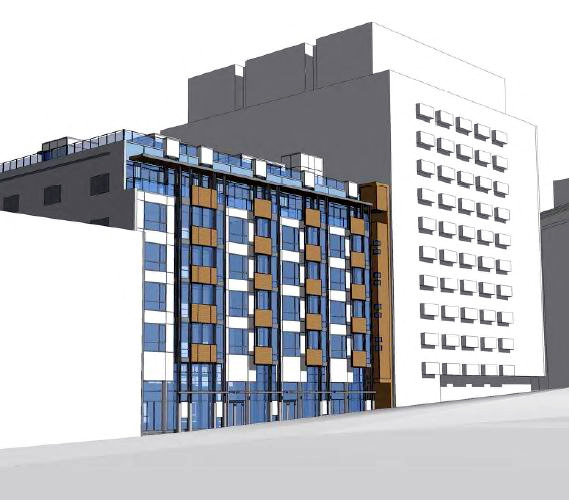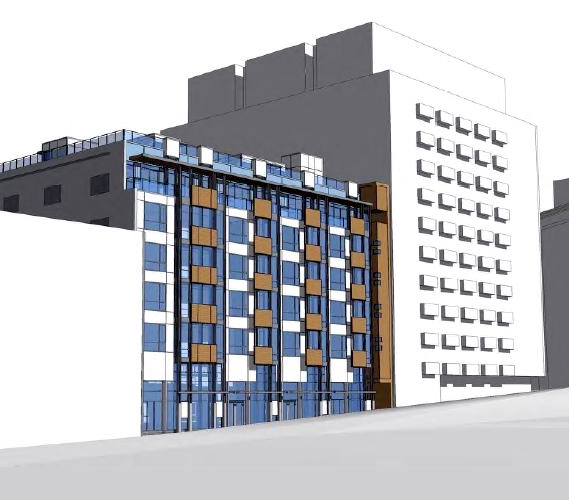Where have we heard this story before? A municipality spends countless hours developing an OCP and a comprehensive strategy of community consultation to get support from the public, only to scale it back more than half way through the process after significant opposition from the community to any changes.
This is what has occurred in the City of North Vancouver this week after nearly three years of development of their OCP revision. It remains to be seen exactly how the revisions will negatively impact the economic viability of potential rezoning proposals, but this is simply another example of planning getting stuck between creating a plan that can effectively generate development while not creating an army of opposition from the community – particularly in an election year when they are trying to pass the OCP beforehand.
City of North Vancouver planning staff presented to Council last night with an overview of community engagement and input received to date through their ‘CityShaping’ OCP update process. A summary of common feedback from the (perhaps not surprisingly) primarily over-50 crowd:
- existing traffic conditions and the need to increase transit capacity
- built form with concerns about view impacts
- the pace of growth and the desire for more ground oriented development
- density bonusing does not provide significant benefits to the community or results in inappropriate development
The overview contained several recommended changes to the draft OCP in response to input received in main public consultation stage of the OCP review/update.
Most of the changes were simply a reduction in density back to the old OCP levels and reducing heights. Changes include:
- reductions of most densities in Lower Lonsdale to existing levels
- elimination of two towers and some density reduction in Central Lonsdale
- increases to density in the East 3rd Frequent Transit Development Area
- elimination of the 20 percent height adjustment
Specific density changes are summarized below:
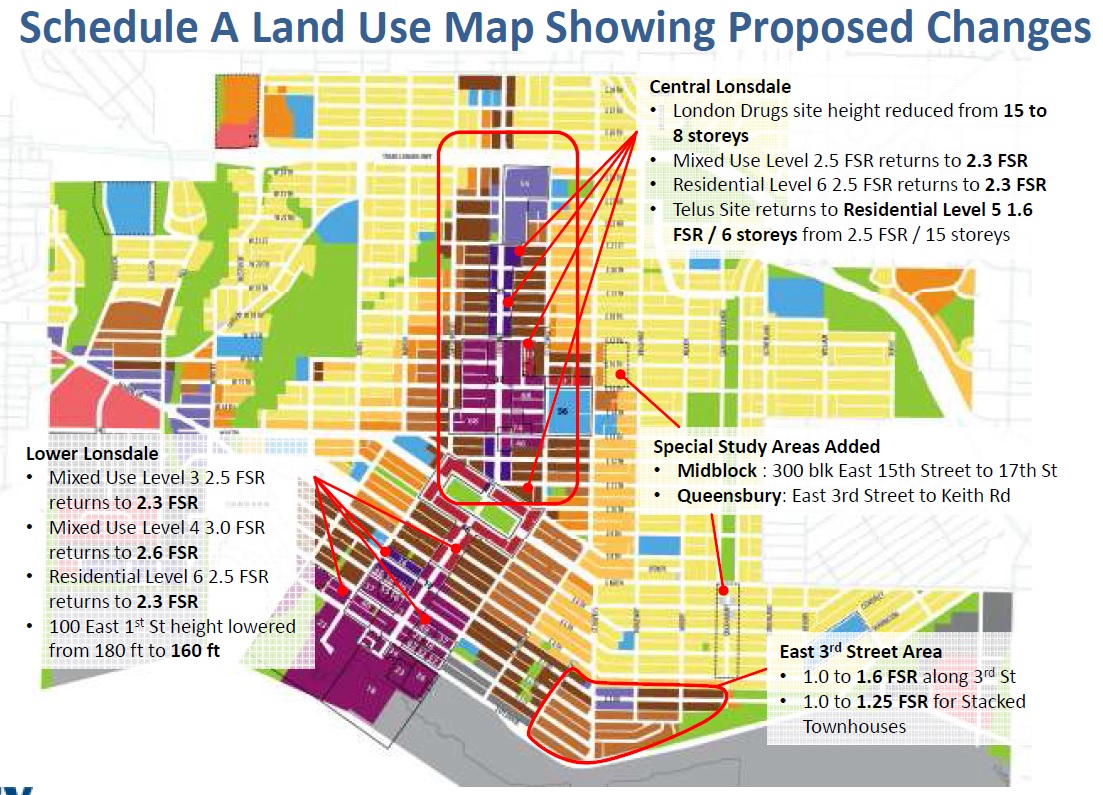 Two key Central Lonsdale sites also face potentially drastic height reductions that could impact their redevelopment potential. These proposed changes include:
Two key Central Lonsdale sites also face potentially drastic height reductions that could impact their redevelopment potential. These proposed changes include:
- Reducing the proposed maximum building height for the 2000 block of Lonsdale (London Drugs) from 15 storeys to 8 storeys.
- Revising the proposed land use designation on the Telus site (100 block of East 11th and East 8th Streets) from Mixed Use Level 3 (2.5 FSR) to Residential Level 5 (1.6 FSR) and reduce the maximum building height from 46 metres to a maximum of six storeys.
The London Drugs building heights could be reconsidered after the City concludes what
will be built at the Harry Jerome site. The Telus site proposal generated considerable opposition, including a petition.
The City of North Vancouver anticipates drafting the version of the OCP that will go towards final approval in the fall of this year before adoption prior to (hopefully) the municipal election later this year.
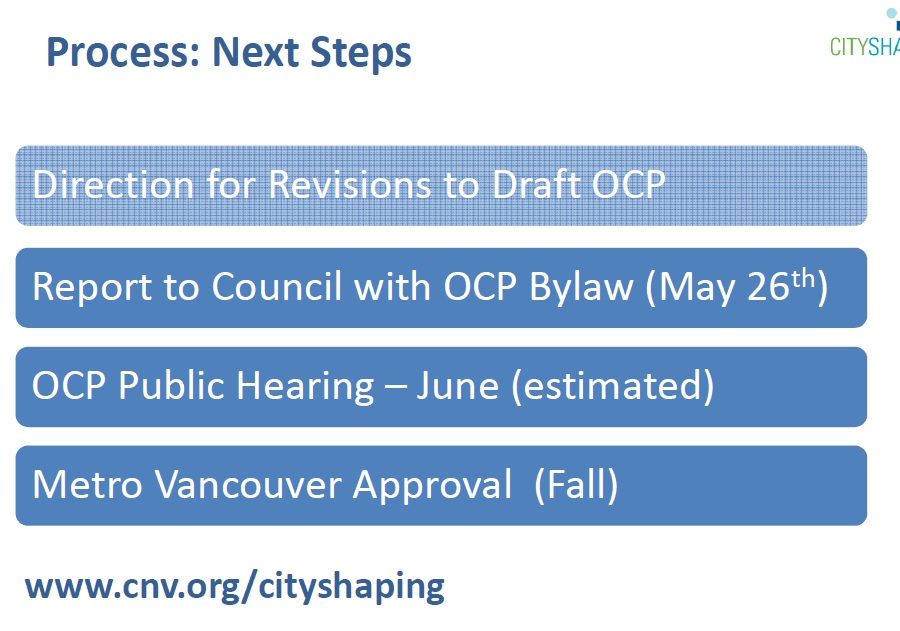 For more information visit: http://www2.cnv.org/CityShaping/index.html
For more information visit: http://www2.cnv.org/CityShaping/index.html



